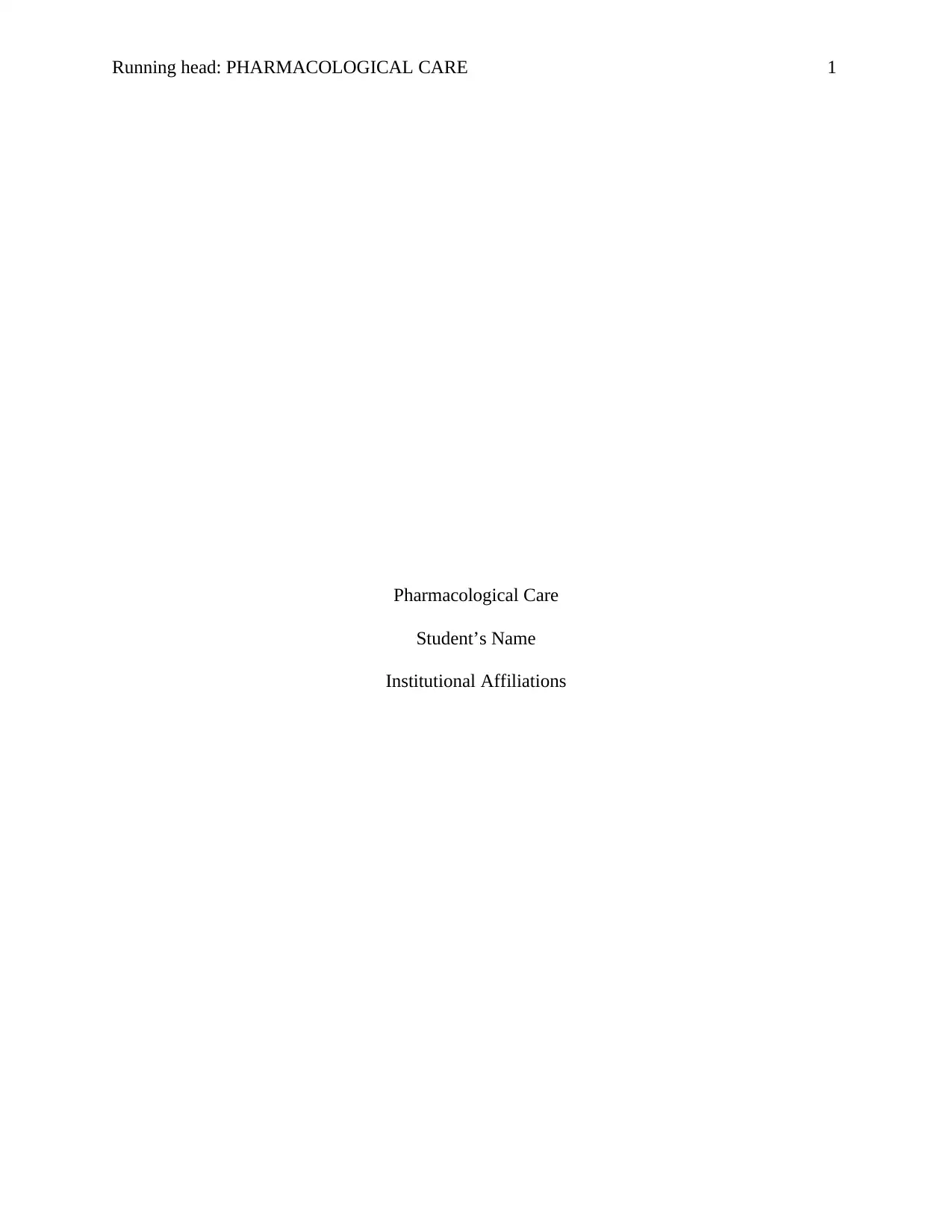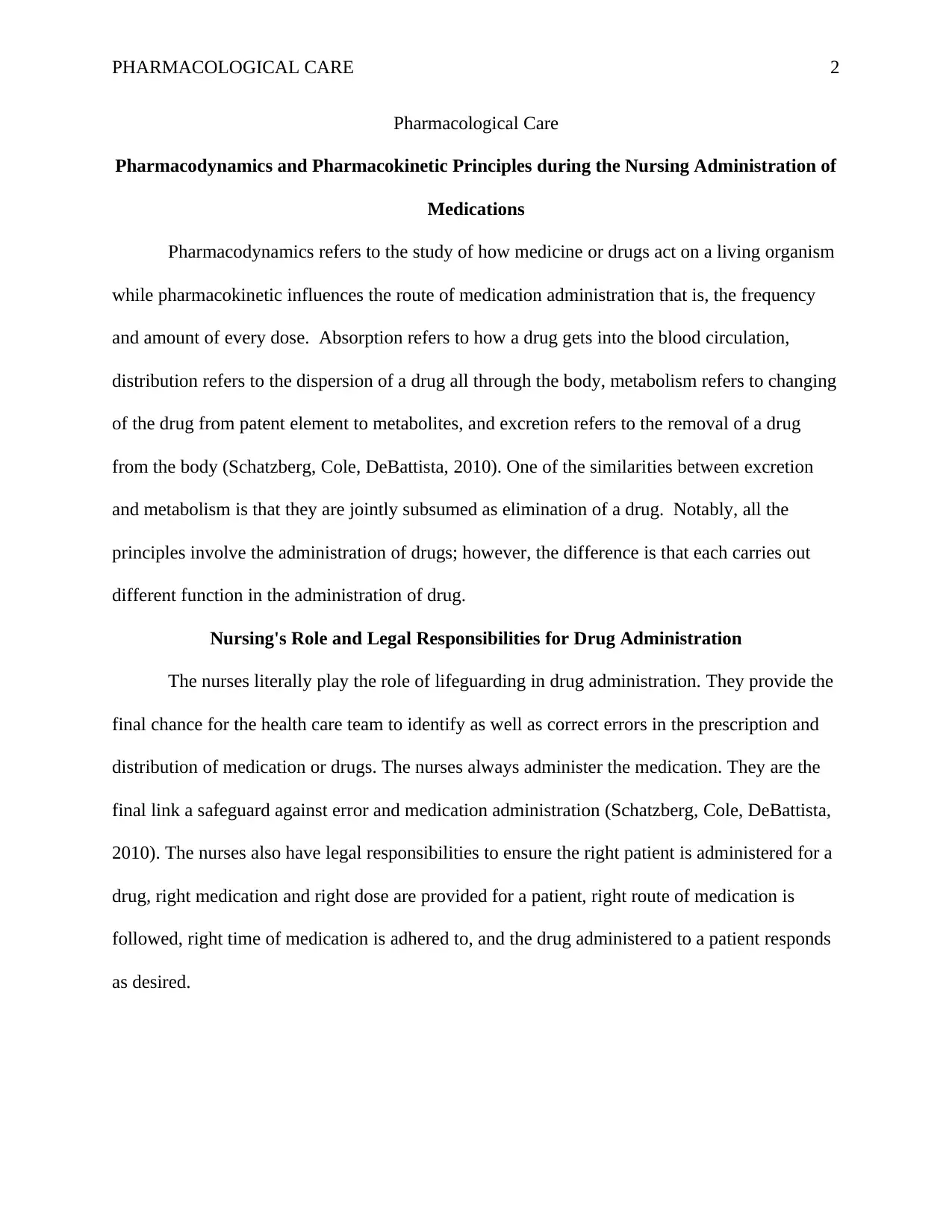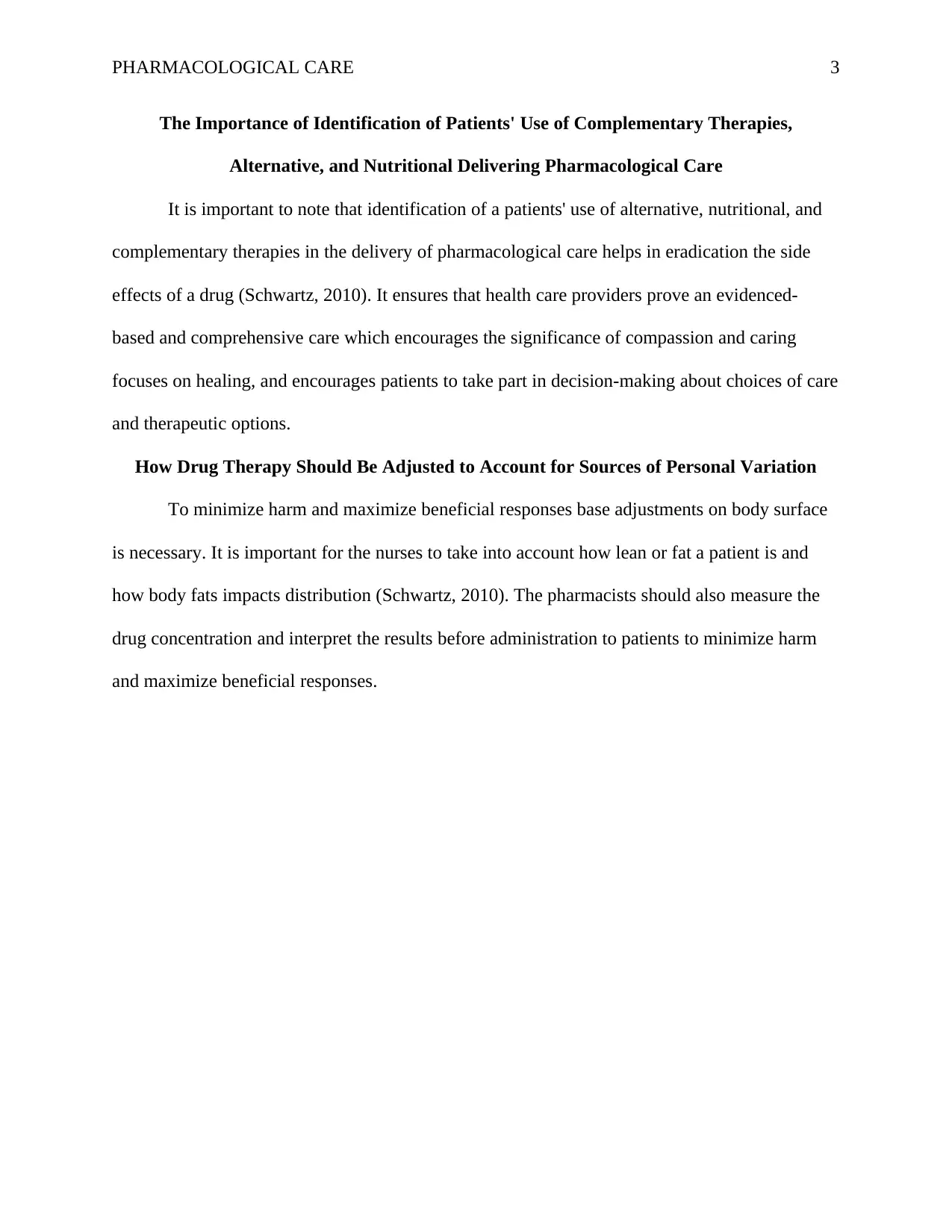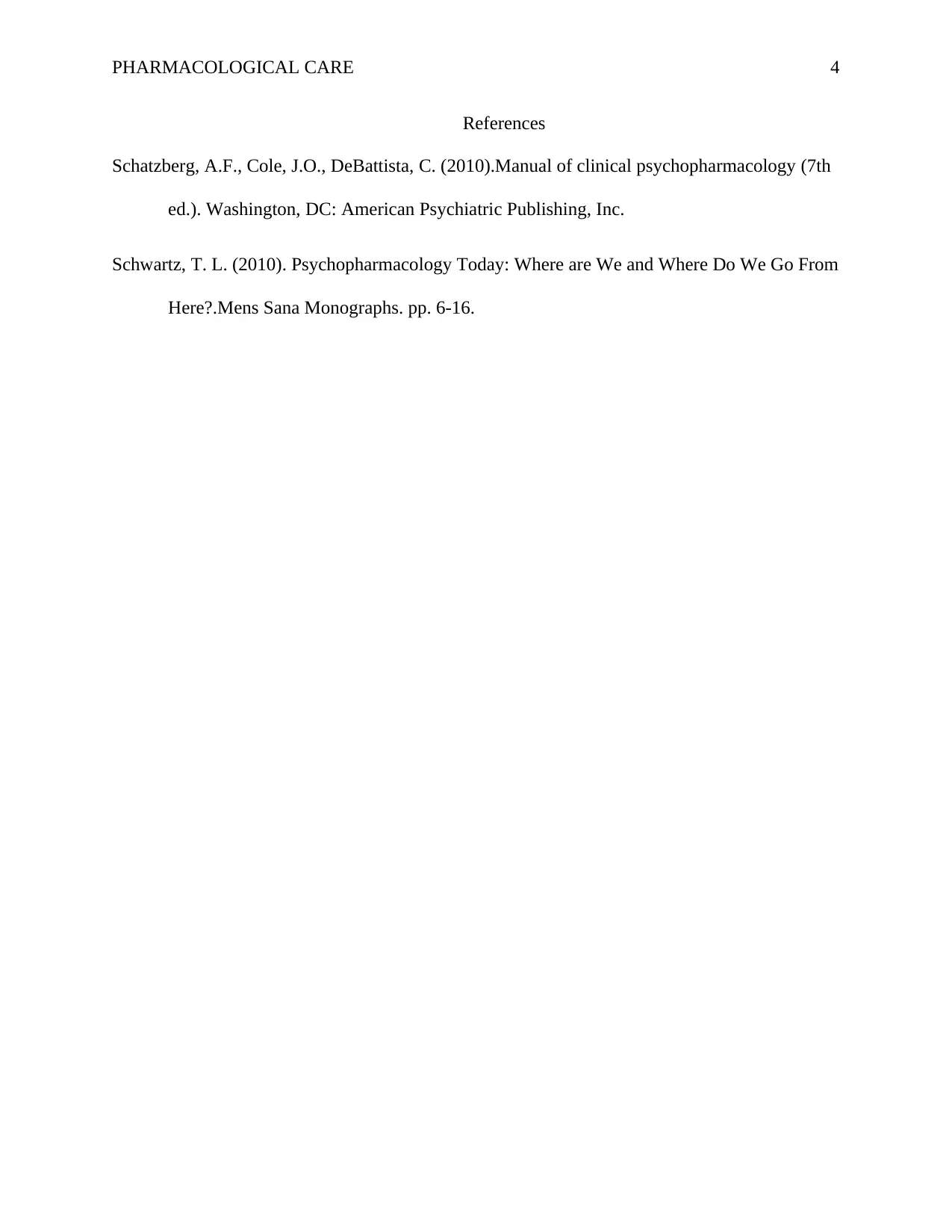Pharmacological Care: Drug Administration, Therapies and Nursing Role
VerifiedAdded on 2023/06/03
|4
|552
|107
Essay
AI Summary
This essay provides an overview of pharmacological care, focusing on the principles of pharmacodynamics and pharmacokinetics in relation to nursing administration of medications. It highlights the crucial role nurses play in ensuring patient safety through correct drug administration, dosage, and timing, while also addressing their legal responsibilities. The essay emphasizes the importance of identifying patients' use of complementary, alternative, and nutritional therapies to avoid adverse drug interactions and promote comprehensive care. Furthermore, it discusses how drug therapy should be adjusted based on individual patient variations, such as body composition, to minimize harm and maximize therapeutic benefits. The essay references clinical psychopharmacology and perspectives on current psychopharmacological practices.
1 out of 4











![[object Object]](/_next/static/media/star-bottom.7253800d.svg)